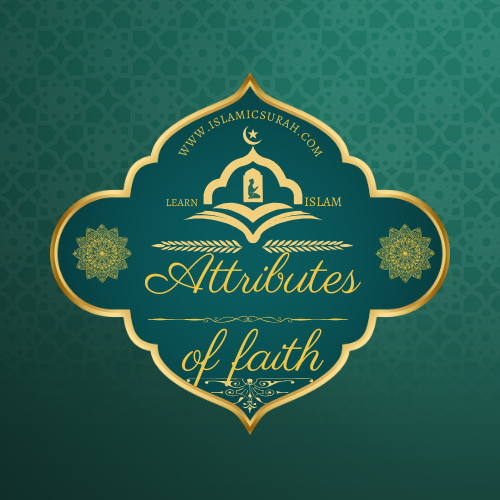What does Allahu Akbar mean?
In Islam, Allahu Akbar is referred to as the Takbir. The phrase is written in Arabic script as الله أكبر, derived from Allah (“God”) and akbar (“Greatest”). The words Allahu Akbar meaning in English translates to “God is the greatest.” This Arabic phrase is frequently used by over 1 billion Muslims worldwide. The phrase اللَّهُ أَكْبَرُ declares the greatness and absolute supremacy of Allah, the one and only God in Islam. It is a powerful expression of faith, serving as a reminder of the grandeur and majesty of the Creator.

How to pronounce Allahu Akbar?
Here’s a simplified guide to pronouncing “اَللَّهُ أَكْبَر“:
Allahu: Say it as “Ah-lah-hu.” Ensure the “hu” is spoken softly.
Akbar: Pronounce it as “Ahk-bar.” The “Ah” should sound similar to the beginning of “Allahu.”
When combined, it should sound like “Ah-lah-hu Ahk-bar.”
Allahu Akbar in Arabic letters
اَللَّهُ أَكْبَرُ
الله سب سے بڑا ہے
Allah is the Greatest
Benefits of Allahu Akbar
Following are the Allahu Akbar benefits and rewards:
Hazrat Umar ibn Al-Khattab (رَضِيَ ٱللَّٰهُ عَنْهُ) said, “The utterance of Allahu Akbar is more valuable than the world and everything in it.”
In a hadith, the Prophet ﷺ instructed:
“When you witness an eclipse, remember Allah by saying Takbir, pray, and give Sadaqa.”
To bring immense spiritual rewards and closeness to Allah is included in the benefits of reciting Allahu Akbar 100 times.
Benefits of saying Subhanallah Alhamdulillah Allahu akbar:
In a hadith reported by Abu Hurayrah, the Messenger of Allah ﷺ said:
“Whoever glorifies Allah (says Subhan Allah سُبْحَانَ اللَّه) 33 times after each prayer, praises Allah (says Al-hamdu Lillah اَلْحَمْدُ لِلَّه) 33 times, and magnifies Allah (says Allahhu Akbar اَللَّهُ أَكْبَر) 33 times, totaling ninety-nine, then completes the count by saying La ilaha ill-Allah wahdahu la sharika lahu, lahul-mulk wa lahul-hamd wa huwa ‘ala kulli shayin qadir (There is no god but Allah Alone, with no partner. His is the dominion and His is the praise, and He is capable of everything), his sins will be forgiven, even if they are as numerous as the foam of the sea.”
Allahu Akbar ki fazilat:
The Prophet ﷺ said, “Anyone who says La ilaha illa Allah or اَللَّهُ أَكْبَر receives glad tidings.” Naturally, the Sahaba were curious and asked him ﷺ what these “glad tidings” referred to. He ﷺ responded, “The glad tidings of Jannah.”
Practical Uses and Spiritual Benefits of Allahu Akbar
The Use of Subhan Allah Alhamdulillah Allahu Akbar
During Sehri, when you take the last sip of water, reciting:
Subhan’Allah,
Alhamdulillah,
La ilaha illallaah,
Allahu akbar, will prevent you from feeling thirsty.
Takbir in the Prophet’s Actions and Teachings
When beginning a journey, the Prophet ﷺ would say اَللَّهُ أَكْبَر four times before reciting the du’a for travel, embedding the takbīr as he faced challenges or embarked on journeys. He also used اَللَّهُ أَكْبَر to express joy at receiving good news, victories, or delivering glad tidings.
In another account, the Prophet ﷺ heard a man reciting:
اللَّهُ أَكْبَرُ كَبِيراً، وَالْحَمْدُ لِلَّهِ كَثيراً، وَسُبْحَانَ اللَّهِ بُكْرَةً وَأَصِيلاً
“Allahu Akbar Kabeerah, Wa Al-Hamdulillahi Katheerah, Wa SubhanAllahi Bukratan Wa Aseela”
“Allah is the Greatest, and praise be to Allah in abundance, and glory be to Allah in the morning and in the evening.”
The Prophet ﷺ, impressed by this statement, remarked that it “opened the gates of the heavens.”The Role of اَللَّهُ أَكْبَر in Prayer
The Role of Allahu Akbar in Prayer and Call to Prayer
The Allah hu Akbar is said during each stage of obligatory (salah) and supererogatory (nafl) prayers. It is also part of the adhan, the call to prayer for those outside the mosque, and the iqama, the call for those inside to prepare for prayer.
Use of اَللَّهُ أَكْبَر in Birth and Funeral Customs
The اللَّهُ أَكْبَرُ is recited after the birth of a child to praise God. It is also included in Islamic funeral and burial practices.
Recitation of Takbir Allahu Akbar During Eid al-Adha
During the festival of Eid al-Adha and the days leading up to it, Muslims recite the takbīr, especially on the Day of Arafah. It is Sunnah to recite the takbīrs aloud when heading out for the ‘Eid Prayer. Regarding the act of sacrifice, the Prophet ﷺ said: “When you sacrifice an animal, say ‘Bismillah’ and ‘Allahhu Akbar.’”
Pronouncing the Name of God in Dhabihah
When performing Dhabihah, one must say “Bismillah Allah hu Akbar” as part of the process.
Historical Use of Takbīr in Battle
Historically, the takbīr was used as a battle cry of victory. Ibn Ishaq’s 8th-century Life of Muhammad recounts two instances where Muhammad proclaimed the takbīr during battle.
Conclusion
اَللَّهُ أَكْبَر is a profound phrase in Islam, integral to both personal worship and communal practices. Its recitation spans various aspects of a Muslim’s life, from daily prayers and the call to prayer (adhan and iqama) to significant occasions like Eid and during moments of joy or challenge. This phrase embodies the essence of faith, acknowledging the greatness and supremacy of Allah. By understanding and incorporating اَللَّهُ أَكْبَر into daily rituals, Muslims deepen their spiritual connection and embrace a practice that brings both personal reward and a sense of unity within the faith community.

